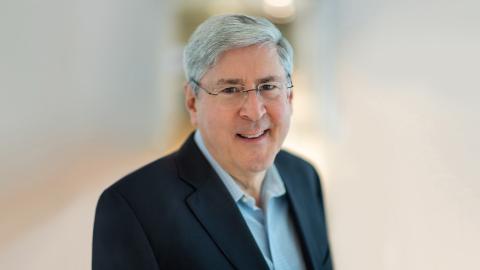At a Pentagon meeting in 2002, a Muslim official from an Asian country observed that there were nearly as many Muslim citizens of India as of Pakistan, yet it was virtually unheard of that an Indian Muslim would join al Qaeda, while many Pakistanis had done so. Why? Because India is free and democratic, he asserted.
His point was not that democracy is a cure-all, but that the problem of terrorism cannot be solved by military or law-enforcement means alone. In other words, it is also crucial to confront the challenge at the level of ideas: to counter extremist teachings, and to promote democratic reforms with the aim of undermining the appeal of extremist Islamism.
The 9/11 attack intensified the Bush administration's interest in India. President Bush had come into office intent on transforming the U.S.-India relationship into a strategic partnership -- one that would acknowledge India's emergence as one of the world's most populous democratic countries, with an information-age economy, formidable military capabilities, and the ambition to increase its role in world affairs.
U.S.-Indian strategic cooperation received a boost early on when Jaswant Singh, then serving simultaneously as India's foreign and defense minister, visited Mr. Bush in the Oval Office in April 2001. Mr. Singh highlighted the countries' shared concerns about Asian security, particularly Indian-U.S. joint interests in missile defense.
The latter was a bold point on a controversial Bush administration initiative. Administration officials appreciated that Mr. Singh was signaling India's eagerness to establish common ground with the United States, even at the risk of protests from Russia, India's close friend during the Cold War.
The Pentagon played a leading role in building on the Bush-Singh dialogue. The U.S.-India Defense Policy Group (DPG), which I co-chaired with my Indian counterpart, forged extensive military-to-military links and opened channels for defense trade. The DPG became a forum for wide-ranging strategic talks beyond bilateral and regional issues.
I opened my first DPG meeting, in December 2001, with the observation that for too long Americans had viewed India chiefly as a problem country -- a nuclear proliferation problem and one half of the India-Pakistan problem. I said that the Bush administration saw India differently, as an opportunity, a rising power with which we could cooperate to shape the strategic environment of Asia to promote security, peace and prosperity.
The 9/11 attack had made it easier for Americans to appreciate India's struggle against terrorism. People readily discount someone else's security concerns when they don't share them. But after 9/11, many Americans inside and outside the government saw India and the United States as partners in the war against Islamist extremists.
The more we learned about jihadist ideology -- that of al Qaeda, Lashkar-e-Taiba and others -- the less likely it appeared that India could free itself of terrorist attacks simply through territorial compromise with Pakistan over Kashmir. Jihadist leaders declare that the aim of their holy war is not to alter specific policies of their enemies, but rather to establish a universal Muslim state. Fighting and killing to implement this apocalyptic vision, they have a long list of grievances and hatreds, including against the rulers of most Muslim countries, who they deem apostates.
But the jihadists particularly despise democracy. They believe law-making and self-government by human beings is blasphemous, an affront to the sovereignty of God, who is the only proper source of legislation.
This is an area where President-elect Obama can make an important new contribution to national security. He can ask the State Department and intelligence community for formal strategies to counter radical Islamist ideology overtly and covertly and hold them to account for results.
The strategies could (1) identify, region by region, the key Muslim voices -- individuals and institutions -- for and against jihadist violence, (2) analyze their respective support networks and vulnerabilities, (3) develop U.S. and multilateral courses of action to amplify anti-terrorist voices and to undermine the extremists, and (4) establish measures of success and track progress. A key to success would be the quality of U.S. linkages with friendly foreign countries, like India, that share our interests and have relevant knowledge and capabilities.
The carnage in Mumbai will prove a setback for jihadist extremists if it motivates the Obama team to intensify strategic cooperation with India, and helps initiate a proper strategy to defeat our terrorist enemies ideologically.















